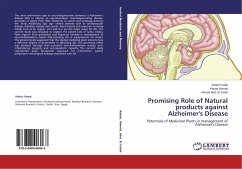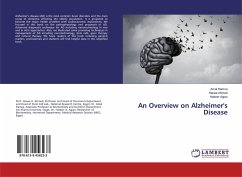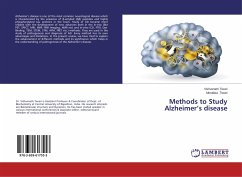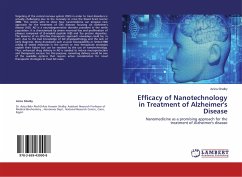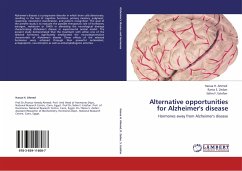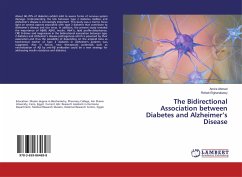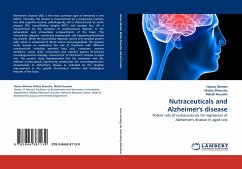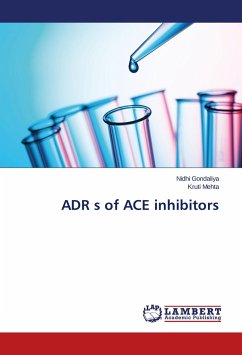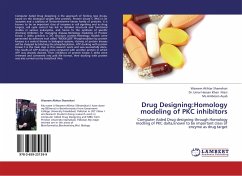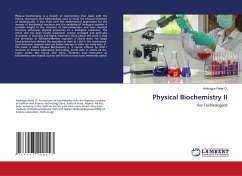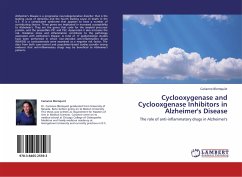
Cyclooxygenase and Cyclooxgenase Inhibitors in Alzheimer's Disease
The role of anti-inflammatory drugs in Alzheimer's
Versandkostenfrei!
Versandfertig in 6-10 Tagen
32,99 €
inkl. MwSt.

PAYBACK Punkte
16 °P sammeln!
Alzheimer's Disease is a progressive neurodegenerative disorder that is the leading cause of dementia and the fourth leading cause of death in the U.S. It is a complicated syndrome that appears to have a number of contributing factors. Three genes are implicated in increased susceptibility to Alzheimer's. They are the genes that code for the amyloid precursor protein, and the presenillins PS1 and PS2. Apoprotein E also increases the risk. Oxidative stress and inflammation contribute to the pathology associated with Alzheimer's Disease. A total of 17 epidemiologic studies have been performed in...
Alzheimer's Disease is a progressive neurodegenerative disorder that is the leading cause of dementia and the fourth leading cause of death in the U.S. It is a complicated syndrome that appears to have a number of contributing factors. Three genes are implicated in increased susceptibility to Alzheimer's. They are the genes that code for the amyloid precursor protein, and the presenillins PS1 and PS2. Apoprotein E also increases the risk. Oxidative stress and inflammation contribute to the pathology associated with Alzheimer's Disease. A total of 17 epidemiologic studies have been performed in which non-steroidal anti-inflammatory drugs (NSAIDS) or corticosteroids were examined as a negative risk factor. The data from both case-control and population-based studies provide strong evidence that anti-inflammatory drugs may be beneficial to Alzheimer's patients.



